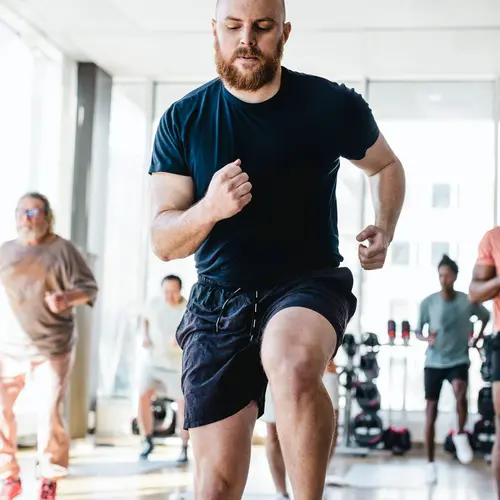Squat exercises aren’t just for athletes. You can do them as part of your regular exercise routine.
They strengthen your lower body, targeting your glutes and quadriceps.
They also make you use your core muscles.
Other muscles that benefit from squats are:
- Hip muscles
- Calves
- Hamstrings
- Obliques
Squats burn calories and might help you lose weight.
They also lower your chances of injuring your knees and ankles. As you exercise, the movement strengthens your tendons, bones, and ligaments around the leg muscles. It takes some of the weight off your knees and ankles.
They help make your knees more stable, too.
What’s more, squats may also help boost your bone mineral density for stronger bones. It adds strength to your skeleton, mainly in the spine and lower body.
Squats improve your flexibility, too. As you become older, your tendons, muscles, and ligaments become less elastic. Regularly doing squats can help slow down this process and limber you up.
Squats help you feel and look good. Squatting helps shape up your legs and butt since it targets the glute and inner thigh muscles. As your buttocks become firm, your posture and balance might improve.
How to Do Squats
Do squats the right way to protect yourself from getting injured. Poor form can take a toll on your spine and knees over time.
The right way to do a squat is to:
- Stand with your feet apart and parallel to each other.
- Place your hands on your thighs.
- Look up and lift your chest.
- Bend your knees to a 90-degree angle, putting all your weight on your heels and sitting back slowly.
- Your knees shouldn't go beyond your toes, and your head and chest should stay upright.
- Hold the position for 5 seconds.
- Rise back up, pressing through your heels, and straighten your hips back to the starting position.
- Repeat five times.
Squats are one of the most effective strength-training exercises around. If you’re not working out already, talk to your doctor before you get started. They can let you know if squats are safe for you to do. You might also want to think about working with a professional strength trainer, who can make sure you’re using the right form.


